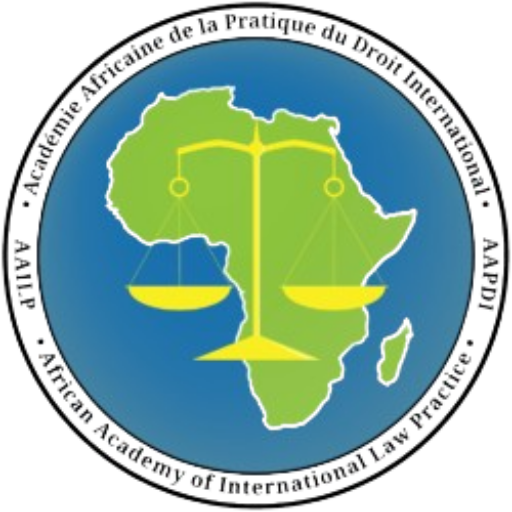AAILP’s main objectives are to:
- Study and provide well-researched opinions on international law in Africa
- Advancing of knowledge, training and research in the practical application of Law, especially International Lawin the african context
- Championing african solutions related disputes either through litigation or arbitration
- To develop and provide as necessary, or at the request of African governments or private corporations, innovative legal consultancy and training programs for professionals including judges, attorneys, publics servants and others to enhance their capacity to carry out their duties with the highest standard of professionalism and integrity
- To serve as a forum for the open and informed exchange of ideas and experiences, and the promotion of co-operation and co-ordination of efforts on African legal, public policy, and international relations issues, including studies on such issues in order to develop practical solutions
- To engage the African public on the continent and in the diaspora in an informed dialogue on effective governance through the dissemination of our research results through publications and public events
These objectives serve AAILP’s goal to improve Africa’s capacity to help african leaders navigate legal complexities in the evolving international law landscape and make them more effective at mastering legal constraints and opportunities.This goal is in support of the United Nations Sustainable Development Goals and, in particular,16 objective. : This goal is in support of the United Nations Sustainable Development Goals and, in particular,16 objective.
The late 20th century has been characterized by an increased interdependence between the nations of the world also clearly show the great practical relevance of this area of law for business, society and politics.In the Africa, important developments have supplemented those global transformations. At a time when trade is facing incredible headwinds and questions are being raised about the utility of regional integration processes, the Establishment of the African Continental Free Trade Area (AfCFTA), signed in March 2018, is a welcome bright spot. By seeking to deepen economic integration of the African continent by creating a single continental market with free movement of business, people and investments, the AfCFTA is a testament to the power of cooperation and a shared vision. At the same time, international legal instruments developed in multilateral institutions and applicable to certain cross-border transactions have become increasingly important to the development of a substantive transnational law.
As commercial intra-african transactions become increasingly international, it is vital to the legal and business communities to understand and analyze the practices and legal principles that govern relationships between firms and between firms and consumers in the new continental arena. One of the objectives in the AfCFTA Agreement is indeed to “establish a mechanism for the settlement of disputes concerning… rights and obligations”. The Protocol on Dispute Settlement (DS Protocol) proclaims dispute settlement to be “a central element in providing security and predictability to the regional trading system.
One of the goals of the Academy is capacity building in the areas on which the Academy focuses. Over the five years, the Academy has hosted many capacity building events around Africa. Using various modes of delivery, the Academy develops, co-ordinates and facilitates seminars, workshops, exchanges, and special lectures, as the primary vehicles for achievement of its objectives.
